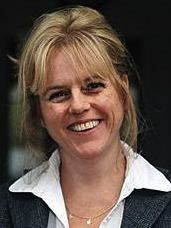No-one now is a greater believer in therapy than me. But hitherto there's been one huge problem with talking cures: finding the right therapist.
It took me several years, three therapists and hundreds of pounds before I found Sarah who then transformed my life.
First I had to believe that I needed to embark on therapy. I was initially resistant. Eventually it was my psychiatrist who persuaded me of how valuable therapy can be. A person, unlike a pill, can listen to your story when you are well enough to tell it, and give you a fresh perspective, he said. There was only so much that he and his prescriptions could do.
Therapy is about a relationship between two people, in a room and, importantly for me, in the moment.
We gain our sense of self from our interaction with others. Therapy is about a relationship between two people, in a room and, importantly for me, in the moment. This has become a key to my recovery: learning to stop regretting the past and worrying about the future; enjoying the present moment. A colleague recommended my first therapist. She was sympathetic and helpful, but she lived more than an hour away. With small children, I couldn't find the time to commit to seeing her. This is such a basic point, but a decade ago it was hard to discover which therapists lived near me, or to realise how important proximity can be. With my second, more local therapist, I was doing all the talking. This can be a good approach for some but I needed more interaction and for my therapist to actively try to help me with strategies and approaches to reverse my negative thinking. Again, at the time, there seemed to be no easy way to establish ahead the way in which a particular therapist works. I dived in, and then was embarrassed to stop. The experience saddened me as I left feeling no better. Therapist number three was recommended by a friend with similar symptoms and behaviour to mine. Sarah was different: she set out in the first meeting how she worked using cognitive analytical therapy and made it clear that I should decide after our first session if I felt comfortable working with her. I did. She helped me identify my feelings, root them out, classify them and investigate how they had solidified into beliefs. By acknowledging my feelings, especially those of anger, I came to accept them, and became less judgmental of myself and others in the process. Under Sarah's supervision I would write letters to my different selves and plot maps of how I moved between them and the rules of behaviour I had created around them, many from long ago when I was an anxious child. I no longer needed to behave like that.
Her aim was to encourage me to rely on myself, to trust my own feelings and ultimately become my own guide.
Sarah worked with my own love of words. One of my chief consolations during my depressive episodes, along with the love of my family, was poetry. When I was well enough to concentrate, short, accessible poems pinned me in time. They also worked outside of time, connecting me to another person, sometimes centuries old, who felt the same as me. Sarah encouraged me to use poems, and added breathing as another way to stay in the moment and reduce my anxiety. She was both guide and instructor. Her aim was to encourage me to rely on myself, to trust my own feelings and ultimately become my own guide.
The personal recommendation I received was the key to the eventual success of my therapy. But it was pure luck that I chanced on Sarah thanks to a random conversation with a friend.
So thank heavens for welldoing.org's bespoke therapist directory. It is a way of replicating that personal recommendation: you know far more about your therapist before you sign up who in turn knows far more about you and your needs. Had it existed when I was looking for a therapist, it would have saved me heartache, money and time.
While some aspects of the internet positively damage our wellbeing - there's new evidence about how Facebook can lower our mood for example, by leaving us with that uncomfortable feeling that we have been time-wasting - it is also clear that new ways of connecting will become increasingly key to our good mental health.
While welldoing.org can match you with a therapist, Moodscope.com is a useful tool for monitoring my mental wellbeing. Each morning I can measure my emotional state giving me a Moodscope score: a percentage between 0 and 100, indicating how happy you are. The website stores your scores every day and plots them on a graph so you can track your ups and downs as time goes by.
Luckily, my mood has stabilised sufficiently that Sarah and I ended our therapy last year, after two years. Since then, I feel I have my Black Dog on tight leash. Therapy taught me to be easier on myself, and to find a more compassionate voice. I only wish I hadn't had to endure two breakdowns and too many wasted years before realising what an immensely powerful tool therapy can be.
Rachel Kelly is the author of Black Rainbow: How Words Healed Me: My Journey Through Depression


